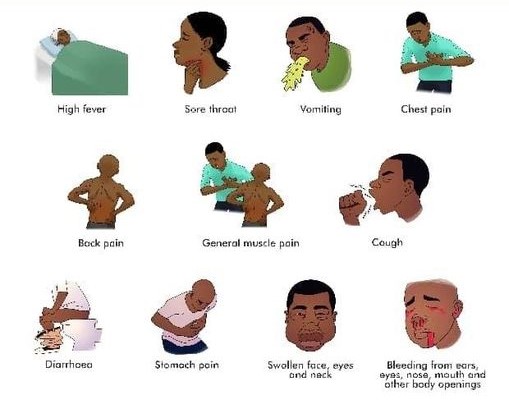The Nigeria Centre for Disease Control and Prevention says it recorded 6,704 suspected Lassa fever cases and 162 deaths across 125 Local Government Areas in 28 states.
The NCDC announced the figures in its Lassa fever situation report published on its website on Friday.
The agency confirmed 911 cases from the suspected cases from January to June 9, 2024.
According to the World Health Organisation, Lassa fever is an acute viral haemorrhagic illness caused by the Lassa virus, a member of the arenavirus family of viruses.
Humans usually become infected with the Lassa virus through exposure to food or household items contaminated with urine or faeces of infected Mastomys rats. The disease is endemic in the rodent population in parts of West Africa.
The NCDC revealed that the case fatality rate (17.8 per cent) is higher than the CFR for the same period in 2023 (17.1 per cent).
“In total for 2024, 28 states have recorded at least one confirmed case across 125 Local Government Areas.
“Sixty-five per cent of all confirmed Lassa fever cases were reported from these three states (Ondo, Edo, and Bauchi) while 35 per cent were reported from 25 states with confirmed Lassa fever cases. Of the 65 per cent confirmed cases, Ondo reported 25 per cent, Edo 22 per cent, and Bauchi 18 per cent.
“The predominant age group affected is 21-30 years (Range: 1 to 98 years, Median Age: 32 years). The male-to-female ratio for confirmed cases is 1:1,” it added.
So far, 33 healthcare workers have been infected with the virus in the country.
Lassa fever is known to be endemic in Benin, Ghana, Guinea, Liberia, Mali, Sierra Leone, Togo, and Nigeria, but probably exists in other West African countries as well.
“Person-to-person infections and laboratory transmission can also occur, particularly in healthcare settings in the absence of adequate infection prevention and control measures.
“Diagnosis and prompt treatment are essential. The overall case-fatality rate is one per cent. Among patients who are hospitalised with severe clinical presentation of Lassa fever, case fatality is estimated at around 15 per cent. Early supportive care with rehydration and symptomatic treatment improves survival.
“About 80 per cent of people who become infected with the Lassa virus have no symptoms. One in five infections result in severe disease, where the virus affects several organs such as the liver, spleen, and kidneys,” WHO said.


